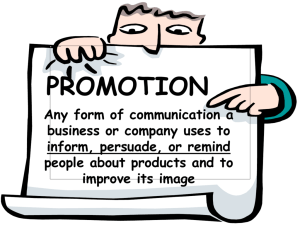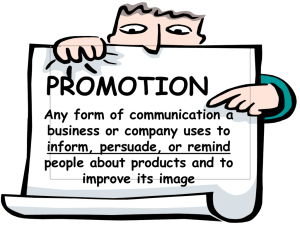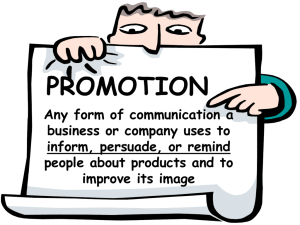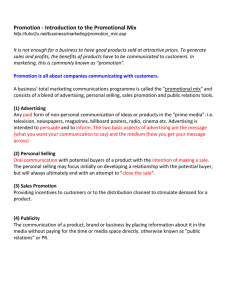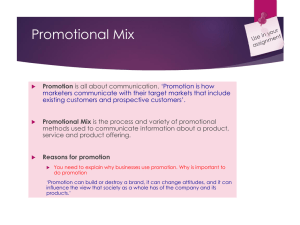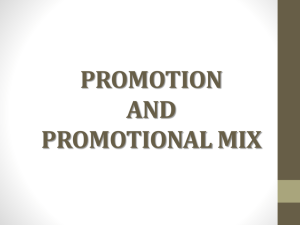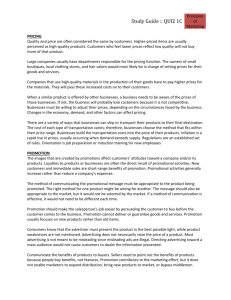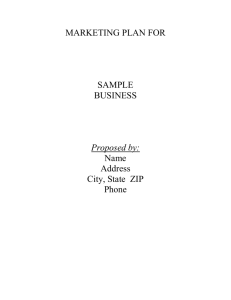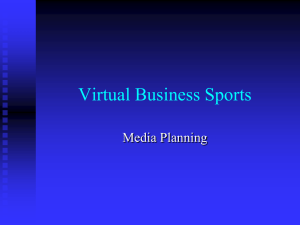Promotion Study Guide Answers
advertisement
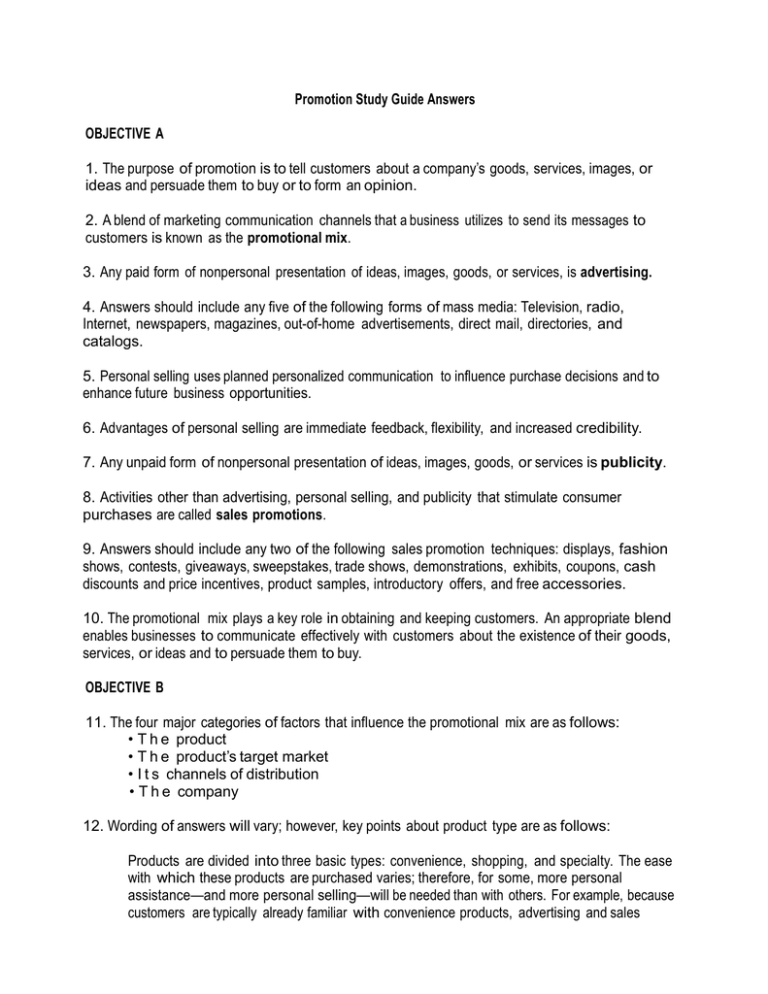
Promotion Study Guide Answers OBJECTIVE A 1. The purpose of promotion is to tell customers about a company’s goods, services, images, or ideas and persuade them to buy or to form an opinion. 2. A blend of marketing communication channels that a business utilizes to send its messages to customers is known as the promotional mix. 3. Any paid form of nonpersonal presentation of ideas, images, goods, or services, is advertising. 4. Answers should include any five of the following forms of mass media: Television, radio, Internet, newspapers, magazines, out-of-home advertisements, direct mail, directories, and catalogs. 5. Personal selling uses planned personalized communication to influence purchase decisions and to enhance future business opportunities. 6. Advantages of personal selling are immediate feedback, flexibility, and increased credibility. 7. Any unpaid form of nonpersonal presentation of ideas, images, goods, or services is publicity. 8. Activities other than advertising, personal selling, and publicity that stimulate consumer purchases are called sales promotions. 9. Answers should include any two of the following sales promotion techniques: displays, fashion shows, contests, giveaways, sweepstakes, trade shows, demonstrations, exhibits, coupons, cash discounts and price incentives, product samples, introductory offers, and free accessories. 10. The promotional mix plays a key role in obtaining and keeping customers. An appropriate blend enables businesses to communicate effectively with customers about the existence of their goods, services, or ideas and to persuade them to buy. OBJECTIVE B 11. The four major categories of factors that influence the promotional mix are as follows: • T h e product • T h e product’s target market • I t s channels of distribution • T h e company 12. Wording of answers will vary; however, key points about product type are as follows: Products are divided into three basic types: convenience, shopping, and specialty. The ease with which these products are purchased varies; therefore, for some, more personal assistance—and more personal selling—will be needed than with others. For example, because customers are typically already familiar with convenience products, advertising and sales promotion are used to promote them. Shopping products are usually purchased after a customer has made comparisons of competing products. Personal selling and television advertising are often used to promote shopping products. Specialty products typically require more personal selling so that customers can learn about product features as well as how to operate the products. 13. Wording of answers will vary; however, key points about the stage of a product’s life cycle are as follows: As a product progresses from introduction to growth, to maturity, to decline, the type and amount of promotion needed by the product varies. 14. The promotional mix for products to be used by industrial users must emphasize personal selling, while products to be used by ultimate consumers can be effectively promoted through advertising, sales promo- tion, and publicity. 15. If a product’s consumers are located close together, the product can be promoted through personal selling. However, if the customers are widely spread out, then advertising and sales promotion would probably be emphasized. 16. More personal selling is used when there are many intermediaries between a manufacturer and a consumer. 17. Producers who utilize push strategies promote their products to intermediaries who then promote the products to consumers. Producers who adopt pull strategies promote their products directly to the ulti- mate consumer, who then puts pressure on intermediaries to offer the products. 18. By just adopting a previous promotion mix, a business limits the possibility of locating an even more successful promotional mix. 19. Businesses that allocate small sums of money for promotion tend to rely on local advertising and sales promotion. Businesses that devote large sums of money to promotion can effectively use national advertising. 20. Businesses in the same industry tend to follow the leader in selecting a promotional mix to avoid losing customers to the competition.
